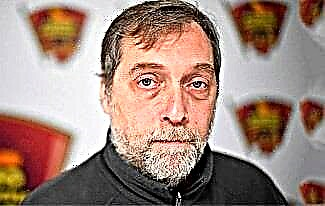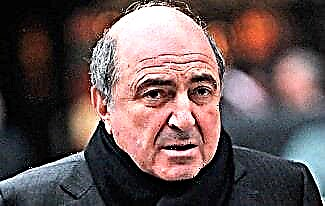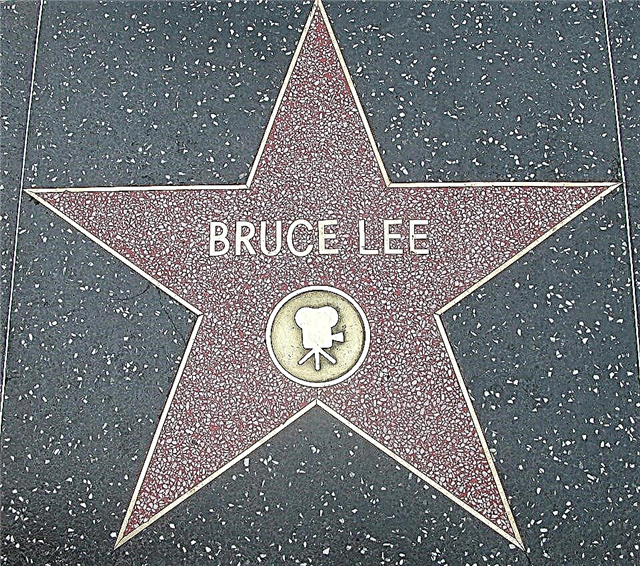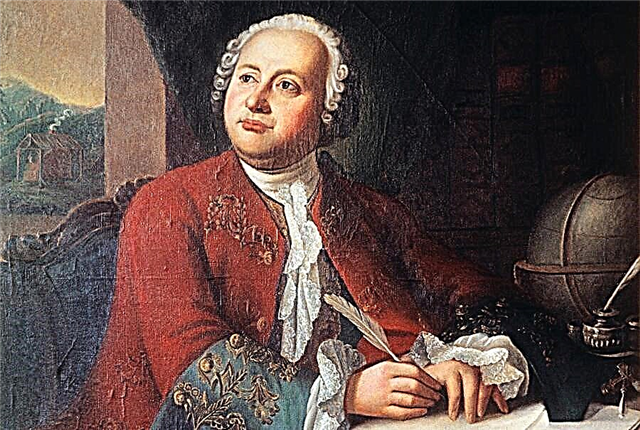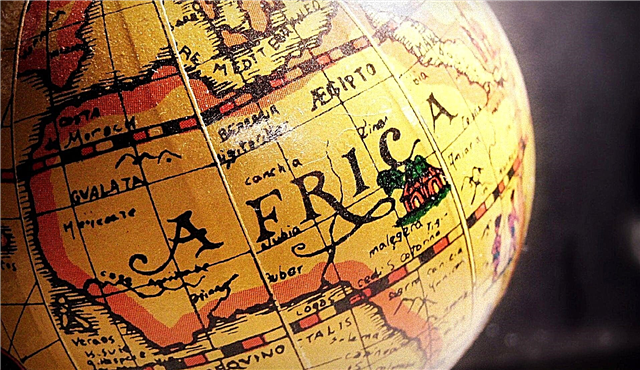St. Bartholomew's night - the massacre of the Huguenots in France by Catholics on the night of August 24, 1572, on the eve of St. Bartholomew's Day.
According to a number of historians, about 3,000 people died in Paris alone, while around 30,000 Huguenots were killed in pogroms throughout France.

It is believed that St. Bartholomew's Night was provoked by Catherine de Medici, who wanted to consolidate peace between the two warring parties. However, neither the Pope, nor the Spanish king Philip II, nor the most zealous Catholics in France shared Catherine's policy.
The massacre took place 6 days after the wedding of the royal daughter Margaret with the Protestant Henry of Navarre. The murders began on 23 August, a couple of days after the attempted assassination of Admiral Gaspard Coligny, the military and political leader of the Huguenots.
Huguenots. Calvinists
Huguenots are French Protestant Calvinists (followers of the reformer Jean Calvin). It is worth noting that wars between Catholics and Huguenots have been fought for many years. In the 50s, Calvinism became widespread in the west of the country.
It is important to note one of the basic doctrines of Calvinism, which reads as follows: "Only God decides in advance who will be saved, therefore a person is not able to change anything." Thus, the Calvinists believed in divine predestination, or, in simple terms, in destiny.
Consequently, the Huguenots relieved themselves of responsibility and freed themselves from constant worries, since everything is already predetermined by the Creator. In addition, they did not consider it necessary to give tithes to the church - a tenth of their earnings.
Every year the number of Huguenots, among whom there were many dignitaries, increased. In 1534, monarch Francis I found leaflets on the doors of his chambers, which criticized and ridiculed Catholic doctrines. This provoked anger in the king, as a result of which the persecution of the Calvinists began in the state.

The Huguenots fought for freedom of worship of their religion, but later the war turned into a serious confrontation between political clans for the throne - the Bourbons (Protestants), on the one hand, and Valois and Guises (Catholics), on the other.
The Bourbons were the first candidates to the throne after Valois, which fueled their desire for war. By the upcoming St. Bartholomew's night from 23 to 24 August 1572 they came as follows. At the end of another war in 1570, a peace agreement was signed.
Despite the fact that the Huguenots did not manage to win a single serious battle, the French government had no desire to participate in a military conflict. As a result, the king agreed to a truce, making big concessions to the Calvinists.
From that moment on, the Huguenots had the right to conduct services everywhere, with the exception of Paris. They were also allowed to hold government posts. The king signed a decree granting them 4 fortresses, and their leader, Admiral de Coligny, received a seat in the royal council. This state of affairs could not please either the mother of the monarch, Catherine de Medici, or, accordingly, Gizam.
And yet, wanting to achieve peace in France, Catherine decided to marry her daughter Margaret to Henry IV of Navarre, who was a noble Huguenot. For the upcoming wedding of the newlyweds, many guests from the groom's side, who were Calvinists, gathered.
Four days later, on the personal order of the Duke Heinrich de Guise, an attempt was made on the life of Admiral Coligny. The duke avenged François de Guise, who was killed several years ago on the orders of the admiral. At the same time, he was annoyed that Margarita did not become his wife.
However, the one who shot Coligny only wounded him, as a result of which he managed to survive. The Huguenots demanded that the government immediately punish everyone who was involved in the assassination attempt. Fearing revenge from the Protestants, the king's associates advised him to end the Huguenots once and for all.
The royal court had a great aversion to Calvinists. The ruling clan of Valois feared for their safety, and for good reason. During the years of religious wars, the Huguenots twice tried to kidnap the monarch Charles IX of Valois and his mother Catherine de Medici in order to impose their will on them.
In addition to this, the bulk of the king's entourage were Catholics. Consequently, they did their best to get rid of the hated Protestants.
Reasons for St. Bartholomew's Night
At that time, there were about 2 million Huguenots in France, which was approximately 10% of the country's population. They persistently tried to convert their compatriots to their faith, giving all their strength for this. It was not profitable for the king to wage war with them, as it ruined the treasury.

Nevertheless, with each passing day, the Calvinists posed an increasing threat to the state. The Royal Council planned to kill only the wounded Coligny, which was later done, and also to eliminate several of the most influential Protestant leaders.
Gradually, the situation became more and more tense. The authorities ordered the capture of Henry of Navarre and his relative Condé. As a result, Henry was forced to convert to Catholicism, but immediately after his escape, Henry again became a Protestant. It was not the first time that the Parisians called on the monarch to destroy all the Huguenots, who gave them a lot of trouble.
This led to the fact that when on the night of August 24 the massacres of the leaders of the Protestants began, the townspeople also took to the streets to fight dissidents. As a rule, the Huguenots wore black clothes, making them easy to distinguish from Catholics.
A wave of violence swept across Paris, after which it spread to other regions. The bloody massacre, which continued for several weeks, engulfed the entire country. Historians still do not know the exact number of victims during the St. Bartholomew's Night.
Some experts believe that the death toll was about 5,000, while others say the number was 30,000. The Catholics did not spare either children or the elderly. In France, chaos and terror reigned, which soon became known to the Russian Tsar Ivan the Terrible. An interesting fact is that the Russian ruler condemned the actions of the French government.
About 200,000 Huguenots were forced to hastily flee from France to neighboring states. It is important to note that England, Poland and the German principalities also condemned the actions of Paris.
What caused such monstrous cruelty? The fact is that some really persecuted the Huguenots on religious grounds, but there were many who took advantage of St. Bartholomew's night for selfish purposes.
There are many known cases of people settling personal scores with creditors, offenders, or long-standing enemies. In the chaos that reigned, it was extremely difficult to make out why this or that person was killed. A lot of people were engaged in the usual robbery, making a good fortune.
And yet, the main reason for the mass riot of Catholics was the general aversion to Protestants. Initially, the king planned to kill only the leaders of the Huguenots, while ordinary Frenchmen were the initiators of the large-scale massacre.
Massacre on St. Bartholomew's Night
First, at that time people did not want to change religion and established traditions. God, it was believed, would punish the entire state if the people could not defend their faith. Therefore, when the Huguenots began to preach their ideas, they thereby led society to a split.
Secondly, when the Huguenots arrived in Catholic Paris, they irritated the local population with their wealth, since dignitaries came to the wedding. In that era, France was going through hard times, so seeing the luxury of the guests who arrived, people were indignant.

But most importantly, the Huguenots were distinguished by the same intolerance as the Catholics. An interesting fact is that Calvin himself repeatedly burned his opponents at the stake. Both sides accused each other of aiding the Devil.
Where the society was dominated by the Huguenots, Catholics were repeatedly expelled. At the same time, they destroyed and robbed churches, and also beat and killed priests. Moreover, whole families of Protestants gathered for the pogroms of Catholics, as for a holiday.
The Huguenots mocked the shrines of the Catholics. For example, they smashed statues of the Holy Virgin or doused them with all sorts of filth. Sometimes the situation escalated so much that Calvin had to calm down his followers.
Perhaps the most monstrous incident occurred in Nîmes in 1567. Protestants killed almost a hundred Catholic priests in one day, after which they threw their corpses into a well. It goes without saying that the Parisians had heard about the atrocities of the Huguenots, so their actions on St. Bartholomew's Night are to some extent understandable and explainable.
Strange as it may seem, but in itself St. Bartholomew's Night did not decide anything, but only exacerbated the enmity and contributed to the next war. It is worth noting that later there were several more wars between the Huguenots and Catholics.
During the last confrontation in the period 1584-1589, all the main pretenders to the throne died at the hands of assassins, with the exception of the Huguenot Henry of Navarre. He just came to power. It is curious that for this he agreed for the second time to convert to Catholicism.
The war of 2 parties, shaped as a religious confrontation, ended with the victory of the Bourbons. Tens of thousands of victims for the victory of one clan over another ... Nevertheless, in 1598 Henry IV issued the Edict of Nantes, which gave the Huguenots equal rights with the Catholics.
Photo of St. Bartholomew's Night






